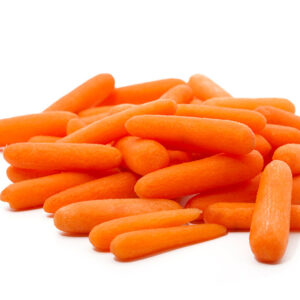
Dr. G’s Secret for Stopping Colon Cancer
Q: My family has a history of colorectal cancer, and I know I’m at a higher risk. Is there anything I can do to reduce my chances of getting cancer, other than just routine screening?
-Doris C.
Dr. G: It’s good that you’re asking this question now.
As you probably know, people who have a family history of colon cancer are much more likely to develop the cancer themselves. This is especially true if any of your immediate family members, like parents, siblings, or children, have had it.
The first thing I’ll tell anyone in this situation is to make sure you’re getting screened regularly, which it sounds like you’re doing. Colon screenings will detect growths called polyps, which can be removed before they turn cancerous.
But you didn’t ask about early detection, you asked about prevention. And there is one particular nutrient that has been found to be especially beneficial when it comes to preventing colon cancer.
It’s the mineral magnesium.
Magnesium is involved in over 300 enzymatic reactions in your body, and is plays a part in everything from energy production to bone formation.
And it seems to have an especially potent protective effect against colon cancer.
Study after study – involving hundreds of thousands of people – has shown that people who have the highest intake of magnesium have the lowest risk of colorectal cancer.
One analysis evaluated over 60,000 women who had been involved in the Swedish Mammography Cohort, and followed them for about 15 years. This study showed that the women who had the highest intake of magnesium had a substantially lower risk of colorectal cancer compared to those who had the lowest intake.
The same results were found when researchers combed through the data of more than 140,000 women involved in the Women’s Health Initiative.
And in the Tennessee Colorectal Polyp Study, researchers evaluated over 2,000 men and women and found, once again, that the those who had the highest magnesium intake had the lowest risk of colorectal cancer.
More specifically, a study published in American Journal of Clinical Nutrition showed that for every 100-mg increase in magnesium intake, the risk of colon cancer dropped by 12 percent.
Certain foods, like spinach, Swiss chard, beans, nuts, and avocados, are good food sources of magnesium. But I wouldn’t recommend relying on diet alone for ample magnesium, especially with your family history of colorectal cancer.
Food sources aren’t as rich in magnesium as they once were because our overworked soils have become dangerously nutrient deficient. This means that in order to get the recommended 400 mg per day, you need to consider dietary supplements.
I recommend taking either magnesium glycinate or magnesium threonate because they are more easily absorbed by the body than other magnesium supplements.
Want me to answer your question next? Email me at [email protected]
To a brighter day,
Dr. Richard Gerhauser, M.D.
Written By Dr. Richard Gerhauser, M.D.
For years he’s been the trusted doctor for celebrities, world-class athletes, and countless seniors looking to reclaim their health.
And now…for the first time ever… he’s making his medical breakthroughs available to readers all across America.
Dr. Richard Gerhauser, M.D. is one of the most pioneering and innovative minds in medicine today – and he delivers cutting-edge cures each month through his Natural Health Response newsletter.
Natural Health Response readers get full access to Dr. Gerhauser’s protocols for chronic pain… heart disease… diabetes… Alzheimer’s… and even cancer. These are the very same treatments Dr. Gerhauser recommends to his own patients at his practice in Tucson, Arizona.
In addition to being a board-certified medical doctor, Dr. Gerhauser has earned two master’s degrees and has served as a clinical professor at the University of Arizona.
And as a physician at the world-famous Canyon Ranch, Dr. Gerhauser treated celebrities from around the world who paid dearly for the type of next-generation health information he provides Natural Health Response readers each month.
View More Free Articles
Mother Nature's Bone-Building Secret REVEALED
Mainstream medicine has peddled the same old song and dance about osteoporosis for years. Pop some calcium pills… do some jumping jacks… and cross your fingers that your bones don’t crumble like a stale cookie. But what if I told you Mother Nature has been hiding a bone-building secret right under our noses? And we […]
The INCREDIBLE Payoff for Delaying Diabetes
If you don’t know where your blood sugar levels stand, it’s time to get them checked. It’s estimated that one in three adults has prediabetes, yet 80 percent of these folks have NO IDEA they’re in this category. That’s a BIG problem because most people will develop type 2 diabetes within just five years of […]
The Biggest Dementia Risk Factor REVEALED
I’m sure you’re familiar with the Skeleton Dance song… “The foot bone is connected to the leg bone. The leg bone is connected to the knee bone…” It’s easy to think of our bones being linked because we can physically see them. What’s less obvious is that everything else about your health is JUST as […]
It's NEVER Too Late to Kick This Dangerous Habit
You’ve heard it a million times before: “Smoking is bad for you.” If you’re still lighting up, I bet you remember a time when smoking wasn’t just accepted—it was downright fashionable. Remember when you could smoke in restaurants, on airplanes, and even in hospitals? Heck, movie stars even made it look cool and sophisticated. Well, […]
The TRUTH About ED No One's Talking About
It’s a subject most men would rather sweep under the rug… erectile dysfunction (ED). But you’re not alone if you’re having trouble in the bedroom. In fact, ED affects up to 30 million men in the U.S. alone. However, popping a little blue pill isn’t the answer. ED drugs are often just slapping a Band-Aid […]
Don’t Let Muscle Loss RUIN Your Golden Years
For older women, muscle mass can take a nosedive after menopause. This means more than trouble carrying in the groceries. Over time, the decline in muscle mass can lead to mobility problems, balance problems, falls, and ultimately a loss of independence. Staying active is a critical piece of the puzzle. But now, researchers have discovered […]
The Bad Habit Causing Lupus
All autoimmune diseases are on the rise—but lupus is one of the worst. When the condition strikes, your immune system starts to attack healthy tissues. Lupus cases have increased by 60 percent in women and have increased six-fold in men over the past four decades. What’s driving this dramatic increase? Well, we might have found […]
SHOCKING Missing Piece of the Diabetes Puzzle Discovered
I’ve been saying for years that there’s MORE to type 2 diabetes than your weight—or even your diet. Sure, they play their part. But unless you’re adding in THIS missing piece of the puzzle, you could be increasing your risk of type 2 diabetes despite your best efforts to avoid it. And you’ll never guess […]
Ditch the Chips and DEFY Aging
Sometimes, you just want something to crunch on. The craving can send even the most health-conscious among us heading straight to the snack aisle. But before you reach for the potato chips—which can contain all kinds of harmful ingredients—I have a better idea. Try THIS crunchy, healthy snack instead of loading up ingredients that can […]
Is Aspirin DEADLY? (Get the Truth Here)
Old habits die hard… especially when we’ve been led to believe they’re good ones. We were told for years that taking an aspirin a day would lower the risk of heart attack and stroke. But for many, those were empty promises that came with a LOT of risk… and LITTLE reward. That’s why, if you’re […]










